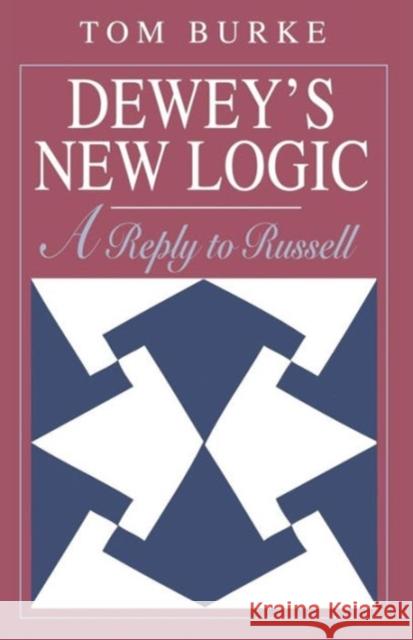Dewey's New Logic: A Reply to Russell » książka
Dewey's New Logic: A Reply to Russell
ISBN-13: 9780226080703 / Angielski / Miękka / 1998 / 300 str.
Although John Dewey is celebrated for his work in the philosophy of education and acknowledged as a leading proponent of American pragmatism, he might also have enjoyed more of a reputation for his philosophy of logic had Bertrand Russell not attacked him so fervently on the subject. In "Dewey's New Logic," Tom Burke analyzes the debate between Russell and Dewey that followed the 1938 publication of Dewey's "Logic: The Theory of Inquiry." Here, he argues that Russell failed to understand Dewey's logic as Dewey intended, and despite Russell's resistance, Dewey's logic is surprisingly relevant to recent developments in philosophy and cognitive science.
Burke demonstrates that Russell misunderstood crucial aspects of Dewey's theory and contends that logic today has progressed beyond Russell and is approaching Dewey's broader perspective.
" This] book should be of substantial interest not only to Dewey scholars and other historians of twentieth-century philosophy, but also to devotees of situation theory, formal semantics, philosophy of mind, cognitive science, and Artificial Intelligence." Georges Dicker, "Transactions of the C.S. Peirce Society"
"No scholar, thus far, has offered such a sophisticated and detailed version of central themes and contentions in "Dewey's Logic." This is a pathbreaking study." John J. McDermott, editor of "The Philosophy of John Dewey""











